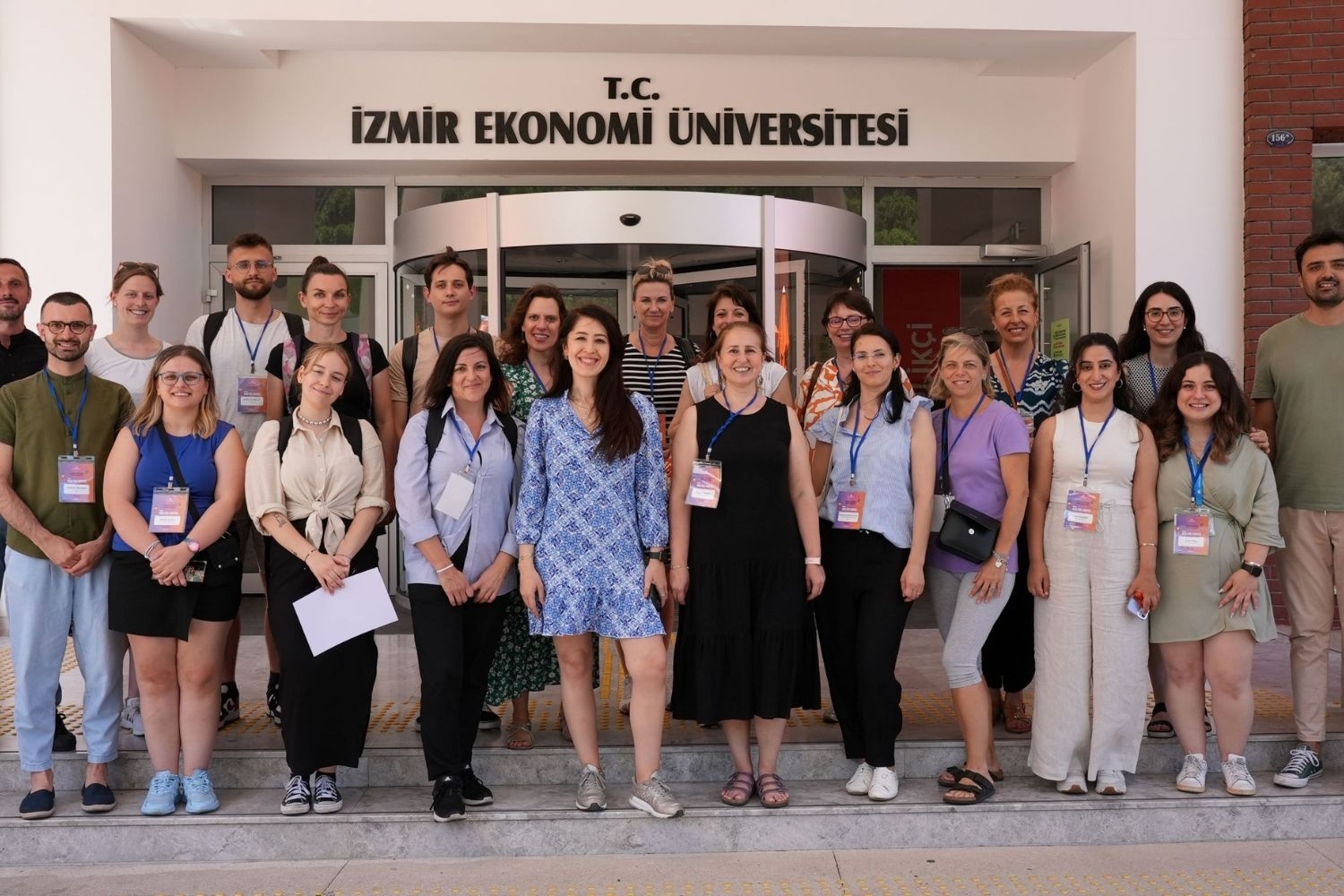Introduction of ‘healthy campus’ to the European Team

The event, co-organized by IUE Office of International Affairs and Health, Culture, and Sports Directorate, took place under the title ‘Erasmus International Education Week: Healthy Campus Concept’. The 4-day program was attended by faculty members and administrative staff from Germany, France, Italy, Slovakia, Poland, Greece, and Romania.
GUZELBAHCE CAMPUS WAS SHOWN AS AN EXAMPLE
Presentations were given to the guests about IUE's healthy campus investments, opportunities related to physical activity and sports activities, healthy eating, and psychological support opportunities. IUE Dean of Students Assoc. Prof. Evrim Üstünlüoğlu delivered a comprehensive seminar on the importance of the ‘healthy campus’ concept for higher education institutions and its contribution to a healthy society. IUE Vice Rector Prof. Dr. Aslı Ceylan Öner informed the participants about the design of the IUE Güzelbahçe campus, which laid its foundation on June 12, as an example of a ‘sustainable healthy campus’.
PHYSICAL AND MENTAL HEALTH
Prof. Dr. Öner also provided information about some of the initiatives carried out across IUE based on the healthy campus concept. As the leader of the IUE Healthy Campus Committee, Prof. Dr. Öner stated that they focus on physical and mental health, healthy eating, environmental health, and sustainability, saying, “We frequently organize sports activities and tournaments for our employees and students. I can mention activities such as Pilates, Zumba, and yoga classes, as well as table tennis tournaments. The fitness hall on campus is available for free use by our students and academic and administrative staff members. We have started organizing social events such as Wellbeing Day both on and off campus to contribute to physical health. We have made healthy food more accessible on campus. For example, instead of offering pastries or sweets at events, we have started serving fruits and products like figs and walnuts to our guests. We took an important step towards raising awareness. We also use various attractive visuals on campus to encourage everyone to eat healthy.”
PSYCHOLOGICAL SUPPORT
Stating that two clinical psychologists working at the Psychological Development and Counseling Center provide psychotherapy sessions to students who request them, Prof. Dr. Öner said, “We organize awareness seminars on issues such as addiction and anxiety management. We ensure that all our students have equal access to educational opportunities and are very sensitive about this. We have increased the number of recycling locations on campus. We have started to take a more active role in recycling and sustainability. To reduce plastic usage, we have placed water dispensers at many locations on campus. Students can get water from dispensers or fill their thermoses instead of using plastic bottles each time. We have created walking paths on campus. All meals served in the cafeteria are controlled in terms of nutritional and caloric value. We have increased the number of awareness-raising activities and seminars to reduce the carbon footprint. All these are among the basic steps we have taken in line with the ‘healthy campus’ goal.”
EXPERIENCED THE HEALTHY CAMPUS
IUE Office of International Affairs Director Hülya İncekara stated that they have carried out an exemplary event on an international level, saying that the guests left Izmir very happy and satisfied. İncekara noted that they organized some sports activities with the guests in line with the healthy living concept, showing their difference once again as IUE. İncekara said, “To enable participants to experience our healthy campus individually, we organized various physical exercises such as Pilates and yoga. At the end of the event, participants prepared and served healthy snacks specific to their countries together with IUE Department of Gastronomy and Culinary Arts Chef Trainer Aypar Satı and gastronomy students. We also organized tours to Ephesus, the Virgin Mary House, and Şirince for our guests, giving them information about the social and cultural life of the regions.”















